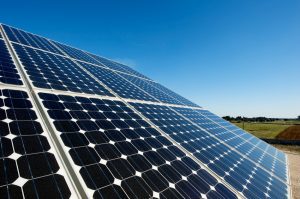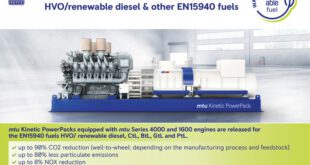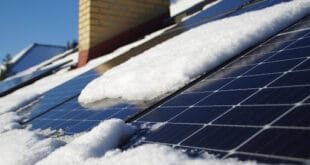
Part 2 of our discussion with Michael Gorton, CEO of Principal Solar.
We continue our discussion about mass market solar energy development with Michael Gorton. Today we are talking about pricing of solar panels and how it will affect the growth of wide spread commercial power development with solar.
Kevin: It would appear with some of the new technologies that are coming out of R&D and even that are already on the market that is even getting stronger and stronger. I just posted today about some research out of UCLA where they were doing tandem layer solar cells and some of the efficiency increases that they’ve been able to get out of that.
That’s still in the research and there’s plenty of other technology that’s actually coming onto market with higher efficiencies and higher rates of, for the layperson, transforming that free solar energy into electricity that goes into the grid.
I mean there have been tremendous price declines in solar technology just in the last two years. You were talking about exponential over the last 20, but just the declines in the last two years alone would seem to put a bit of a rosy forecast on the development of larger scale solar development.
Michael: Nobody expected the kind of price drops that we saw this year and by some calculations it’s as much as mid 30% drop. When I said exponential drops, I’m talking about somewhere in the 7 to 12, 13% range, but when you start saying numbers like 34%.
What some calculations show, we saw in 2011. It certainly moved the bar forward dramatically and I think for the futurists and the people that really want to think about the impact in the future, consider this. When we get to grid parity – let’s assume it’s worst case 2017. What that means is the cost of solar panels now is such that it can compete with natural gas out on the grid.
Let’s assume that happens in 2017. What happens in 2018 or 2019? I frankly don’t see anything that is going to halt the exponential drops at least for some time into the future and therefore, when we’re looking at – and just to understand the metric right now.
Two years ago when we started Principal Solar, the cost of solar panels was about $2 a watt. This year it’s about $.90 a watt and you can find it even cheaper, as low as $.85 a watt. So, two years ago $2 a watt. Now $.95 a watt and my prediction is that, again, this is a rock and we’re learning how to manufacture more and more efficiently every year.
My prediction is that we’re going to get down to – let’s be dramatic here – a nickel a watt. Grid parity is probably somewhere in the $.65 to $.70 range.
Think about it this way. Now solar is cheaper than natural gas and I picked natural gas because I think as we look into the future and say, “What power plants will we build?” I think nuclear is more or less off the table, although we are going to build some, but nuclear is already more expensive than solar and coal I think is also off the table because of the environmental issues.
Natural gas we have ample supplies here in the United States and the delivery is relatively inexpensive and the cost of natural gas is relatively inexpensive. We’ll see a lot of natural gas power generation, but when solar gets to the point where it is cheaper than natural gas, everybody will want it as their primary source for in the daylight hours when the sun’s up.
Kevin: If we could go into a bit of the economics and the jobs element of this discussion. Let me start off by saying the Solyndra issue has been out there. It’s been bandied around in politics back east and then of recent some of the nuclear folks have been using it against the solar industry, but it’s an anomaly. Let’s just face it.
The Solyndra Deal was an anomaly. There was a mess up in there, but it’s really small potatoes when you consider the whole scheme of things in terms of developing solar energy for our country.
Can you talk to me about what you’ve seen and what you’re seeing in terms of what the solar industry is doing to help our country in terms of the economy, job creation and what that job creation means for our future?
Michael: First of all, let me comment on the industry trend, which I believe caused Solyndra in the first place. If you look at any other industry that is new and growing and I like to take the computer or IT industry as an example. If you look at it and think back to the late 70’s and early 80’s when PCs and computers really started being manufactured on a regular basis.
Think about the giants back then. They were DEC, Sperry, UNIVAC. They’re all gone. All of them, but is the computer industry still thriving and surviving? Absolutely it is.
What I would suggest to you is that Solyndra is no more than another – maybe could not even be compared to a UNIVAC or a DEC, but certainly when you see industries that are transforming as rapidly as solar is right now, there will be corporations that are fatalities.
Here’s the bad news about manufacturing of solar panels. Today they are very labor intensive and it’s not likely that in the near future we will be able to compete with the lower labor costs in India or China.
I think the bad news is if you want to see manufacturing jobs in the United States from solar, then you’re not going to see them if you want this trend of exponential price drops to continue. That’s the bad news, but here’s the good news.
Electricity is an essential component of everything we do from manufacturing, construction to our daily lives. To the extent that we are buying panels abroad in China and bringing them to the United States and generating cheap electricity that’s clean.
I think there will be a lot of jobs created as we build these solar generation facilities and as we maintain them, but as they come on the grid in the 2015 to 2017 timeframe and they’re producing electricity that competes with or beats natural gas, then you’re going to see cheaper electricity in this country. That will have a huge impact on manufacturing and quality of life.
Kevin: How much do you think residential solar contributes – not in terms of percentage of the power generated, but in terms of public perception, public acceptance of this technology?
I put solar on my roof and I acknowledge that it’s not going to change the world, but it means that I’m contributing a little. I’m talking about it. Other people know about it, that sort of thing.
How valuable is the residential solar to developing this broader scale, larger scale generation?
Michael: Again, I have an opinion that’s a little bit different from most people in this sector, but here’s my analogy. We don’t grow wheat and I’m saying wheat like the thing you make bread with, not the thing if you smoke, but we don’t grow wheat in our backyard, but consider this.
Wheat is grown by farmers who harvest it every year and sell it to a co-op who sells it to a transportation company who sells it to a middle man who sells it to a flour grinding company who sells it to a bread baking company who sells it to another middle man who sells it to a grocery store who sells the bread to us.
That is cheaper than me growing wheat in my backyard and it’s also more consistent. If I were to have a bad crop as a citizen farmer, I may not have any bread, but generally speaking the consistency across the Midwest is such that there’s always going to be plenty of wheat and always good bread to buy at the grocery store.
When I went through all of those steps just a second ago, it’s sort of amazing to realize that it’s cheaper – all of those steps are cheaper than me growing it in my backyard and more consistent.
I submit to you that the power industry is even more so that way because electricity on my roof is complicated. As an engineer I have a relative understanding of it, but my next door neighbor is not an engineer and I’ll bet most of the people on my street are not.
When I wake up in the morning and I flip that light switch, the lights almost always cone on. In my lifetime there’s only been a few times when that didn’t happen and it was because of extreme.
The power company, love them or hate them, they got that electricity back on pretty quick even in the most extreme storms.
I think that roof top solar is a wonderful thing and like you, I’d love to have it, but I don’t think that once we get to grid parity, I don’t think that it will be able to compete with large generating companies putting solar in the desert.
Kevin: Now, this concept of grid parity, do you think that once we achieve it or get close to it that suddenly the major oil companies or other traditional power generation type of companies are going to suddenly embrace it as though they invented it? Do you see them swooping in on it once it comes to that point?
Oil companies now, many of them are touting themselves as developing technologies, etc, but compared to their core business it’s a very, very small part.
Michael: Trust me. There are some very smart forward thinking oil and gas exploration and traditional energy companies. I readily admit that not all of them are there and when we get to grid parity I think a lot of them will jump on it, but all you have to do is look at my board of directors to see that one of best known oil and traditional natural gas exploration companies in the country has joined the board of my company.
If you look at some of the other folks, they built gigawatts of nuclear and coal and natural gas generation.
I can tell you for a fact that there are some places where they are looking at it and to quote the gentleman from Hunt Energy, who has joined my board. He had said, “Energy is energy and if we’re a smart company, we’re looking at it all.” They’ve given their endorsement by joining our board, right?
Kevin: Absolutely. It would seem to me that the closer we get to grid parity that the development of solar will take on a life of its own that will be devoid of the politics and the rhetoric that seems to get thrown around a lot now or in the last 10 years especially, but even now with this whole Solyndra business.
It would seem that we can escape some of that political rhetoric and just get down to this is what we need to do and it makes perfect financial sense for the companies that are doing it.
Michael: I think you put your finger on a critical issue and it’s truly unfortunate that one political party has adopted solar and really brought it to this point and the other political party at least from what we read, and I don’t think this is entirely true, but from what we read in the general press has pooh-poohed the whole industry, but the fact of the matter is I think that as it starts making sense from a capitalist perspective, it won’t be a political issue anymore.
Again, I think we’re going to be there in a couple of years.
Kevin: Absolutely. If you go back 100 years or more in the financial industry, and it’s certainly true today, making money is making money no matter who is in power or what. If a banker can make money, then they’ll find a way to do it.
In this business if there’s a way to make energy that’s efficient and beneficial to the company, then it’ll get built and then the public will see the benefit to that by reduced environmental damages, by cheaper power, etc. At least that’s what we’re talking about I think.
Michael: Right. I’ll give you another analogy. We just did a white paper on the new types of automobiles. Natural gas obviously is a consideration and electric vehicles are another one along with hybrids, but in the course of researching and writing that paper I saw a lot of commentary in the late 1800’s and early 1900’s about this new automobile and comparing it to horses.
People were saying, “We’ve been using horses for 20,000 years and it’s not likely that the automobile will ever replace the horse. We’ll always have it.”
Look around.
Kevin: We now go on vacations to ride on horses for a lot of us and obviously we’re completely dependent on the automobile.
Michael: Right, but the vast majority of the population at the turn of the last century thought the automobile was just a little novelty and the horse was mainstream. I submit to you the same thing is happening right now in solar.
 Alternative Energy HQ solar power for homes, wind energy, and bio fuel issues
Alternative Energy HQ solar power for homes, wind energy, and bio fuel issues





